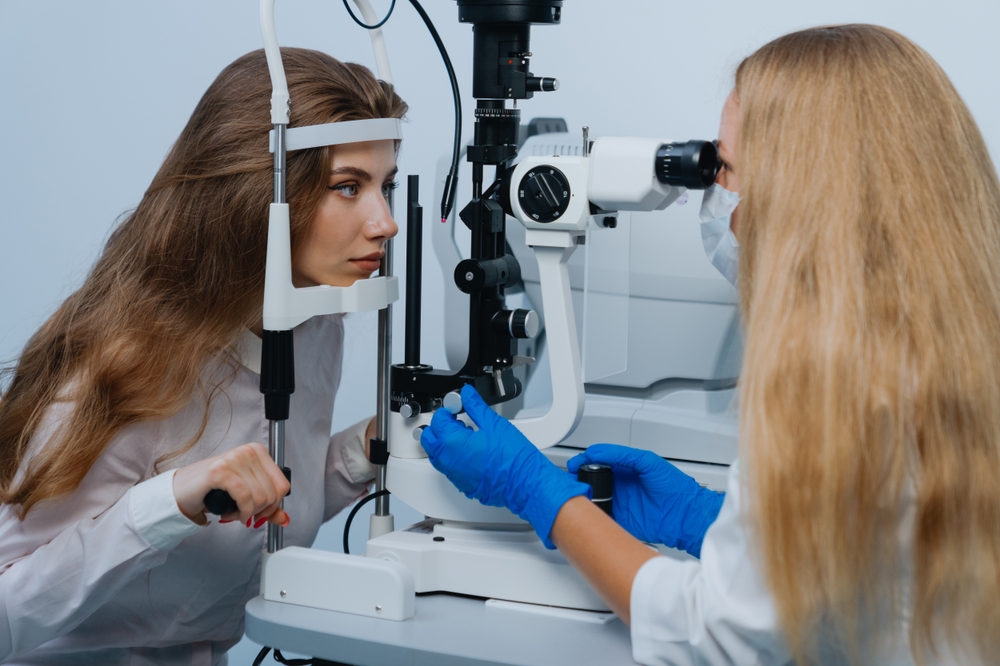
Your eyes are one of the most vital organs in your body, and protecting your vision should be a top priority. Many people only visit the optometrist when they notice vision problems or discomfort, but did you know that comprehensive eye exams are essential even when your eyes feel perfectly fine? At Dr. Newman Optometry, we believe that regular eye exams are not just about getting the right prescription for your glasses or contacts—they can also save your vision by detecting early signs of serious conditions before they become irreversible.
What Is a Comprehensive Eye Exam?
A comprehensive eye exam is a detailed evaluation of your overall eye health and vision. Unlike a simple vision test, which only checks your ability to see clearly, a comprehensive exam involves several tests to assess various aspects of your eye health. These exams look for common vision issues, as well as signs of eye diseases, such as glaucoma, macular degeneration, and diabetic retinopathy.
The Importance of Early Detection
One of the biggest reasons why comprehensive eye exams are so crucial is that many serious eye conditions develop slowly and without obvious symptoms. For example:
• Glaucoma: Often called the "silent thief of sight," glaucoma can cause irreversible damage to the optic nerve. The condition progresses gradually, often without noticeable symptoms until the damage is significant. Early detection during a comprehensive exam can help manage the condition before permanent vision loss occurs.
• Macular Degeneration: This age-related condition affects the central part of your vision. Early stages may be unnoticed, but a comprehensive eye exam can detect early changes in the retina, enabling prompt intervention to slow down progression.
• Diabetic Retinopathy: If you have diabetes, regular eye exams are crucial to check for changes in the blood vessels of your eyes, which can be damaged over time. Detecting these issues early can prevent more serious complications and vision loss.
• Cataracts: Cataracts, the clouding of the lens in your eye, can develop over many years and may not be noticeable at first. Comprehensive exams allow your eye doctor to monitor cataract development and determine the best time for treatment, often with surgery.
What Happens During a Comprehensive Eye Exam?
A comprehensive eye exam typically includes the following steps:
• Vision Testing: Your eye doctor will test your ability to see clearly at various distances. This includes checking for nearsightedness, farsightedness, and astigmatism.
• Retinal Examination: Using advanced imaging technology, your eye doctor will take a detailed look at the back of your eye, including the retina, optic nerve, and blood vessels. This is where many eye diseases are detected early.
• Glaucoma Test: Intraocular pressure (IOP) is measured to check for signs of glaucoma. Elevated IOP can indicate an increased risk of developing this condition.
• Visual Field Test: This test measures your peripheral vision and helps detect early signs of eye conditions like glaucoma or neurological problems.
• Pupil Dilation: In some cases, your eye doctor will dilate your pupils to get a clearer view of the retina and optic nerve. While your vision may be blurry for a few hours after the dilation, it provides valuable information about your eye health.
• Eye Health Assessment: Your eye doctor will also look for signs of other health conditions, such as high blood pressure, diabetes, and autoimmune disorders, which can impact your vision.
How Comprehensive Eye Exams Can Save Your Vision
A comprehensive eye exam can catch potentially vision-threatening issues early, when they are easier to treat and manage. Early intervention often leads to better outcomes and helps preserve your vision for the long term.
In addition, many serious health conditions show early signs in the eyes, such as high blood pressure, diabetes, and even some types of cancer. Your eye exam may be the first place where these conditions are detected, allowing for early treatment and potentially saving your life.
Schedule Your Eye Exam with Dr. Newman Optometry Today
At Dr. Newman Optometry, we are committed to providing thorough and compassionate eye care to help you maintain optimal eye health. Annual comprehensive eye exams are a crucial part of preserving your vision and detecting problems before they become serious.
Reach out to Dr. Newman Optometry to schedule your comprehensive eye exam and ensure your eyes stay healthy for years to come. Visit our office in Beverly Hills, California, or call (323) 653-4078 to book an appointment today.



